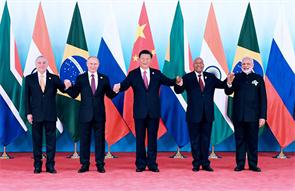Developers may feel the chill this winter
 |
|
LUO JIE/CHINA DAILY |
Our survey shows brisk construction activities in the first half, in line with the official data on real estate investment growth which held up at 8.5 percent year-on-year in the first half. The reason for that was mainly the declining inventory, and developers' needs to increase sales revenues and intention to front-load current projects to avoid deteriorating market conditions in the future. But the outlook on construction activities in the second half is cautious, because sales are likely to weaken and tighter credit financing have generated headwinds for investment growth.
Land market dynamics hold another key. The survey found most developers plan to purchase land-use rights to boost their land reserves and facilitate future expansion. Therefore, we don't expect the resilient growth in land purchase-8.8 percent year-on-year as of June in nationwide data-to translate into an immediate increase in newly started construction. We also found that developers were generally cash rich and their favourable cash positions might have acted as a buffer to avoid a sharp slowdown in property investment despite weaker sales.
As for the market outlook, our survey suggests developers' sentiment has weakened due to the government's restrictive measures, which also took a toll on market transactions. With the restrictive measures on purchase, sales and mortgages extending from top-tier to lower-tier cities over the past few months, tier-2 and tier-3 cities which had gained momentum at the start of the year have begun to bear the brunt of the market curbs.
This echoes official statistics of a sharp slowdown in the growth of floor-space sales-to 13.5 percent year-on-year as of June from 23.7 percent as of February. Nationwide, transactions are likely to slow down in the second half, as home sales in tier-2 and tier-3 cities have started losing steam.
Restrictions on purchase and mortgage clouded developers' outlook on sales, although an increase in the portion of monetized resettlement in shantytown renovation projects may continue to provide some support.
A majority of developers, according to the survey, said that getting bank loans has become more difficult, while access to non-bank financing (trust loans, private lending) has not improved. They also said funding costs have started rising, partly because interest rates have increased-they are likely to rise further due to the tighter credit policies for the property sector and continued deleveraging in the financial market.
Besides, developers, the survey says, expect the central government to further tighten its policy in the second half and the local governments to have more balanced policies. Tightening measures on financing, mortgage and down payments, and adjustments to tax and fees are likely to continue, while some new measures such as developing the rental market and increasing land supply for residential projects could help further stabilize the market.
In other words, we expect downside risks to gradually show up in the property market in the second half. And although the declining housing inventory and better financial conditions acted as buffers in the first half, the survey shows that subdued housing sales and tight credit policies may affect property investment growth and check price rise in the second half-and continued tightening policy is likely to strengthen the headwinds for the sector.
As such, developers may feel the chill this winter.
The author is an economist at Standard Chartered China.
- Contract dispute between Baoshan-based Hualong Real Estate Development Co, Ltd, New China Trust Co, Ltd, Chen Xiaohua, Chen Pan and Jinhua-based Maohua Real Estate Development Co, Ltd
- Xiongan moves to curb speculation on real estate
- Real estate development contract dispute between Chongqing Hengsen Industry Group Co, Ltd and Sichuan-based Zhongtuo Real Estate Co, Ltd
- Water insurance contract dispute between PICC Property and Casualty Co, Ltd and Taizhou Sanfu Ship Engineering Co, Ltd
- China eyes rental housing as solution for rising property prices
- Property market continues to cool with summer slack
- Tighter credit cools China's property market


















